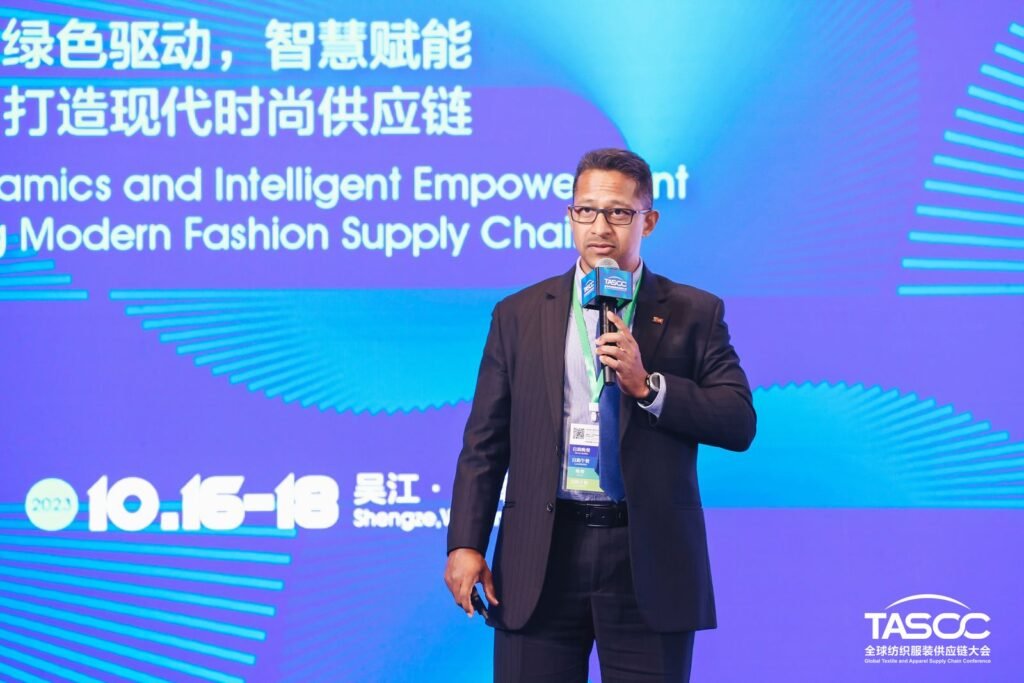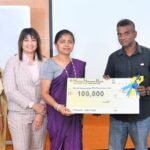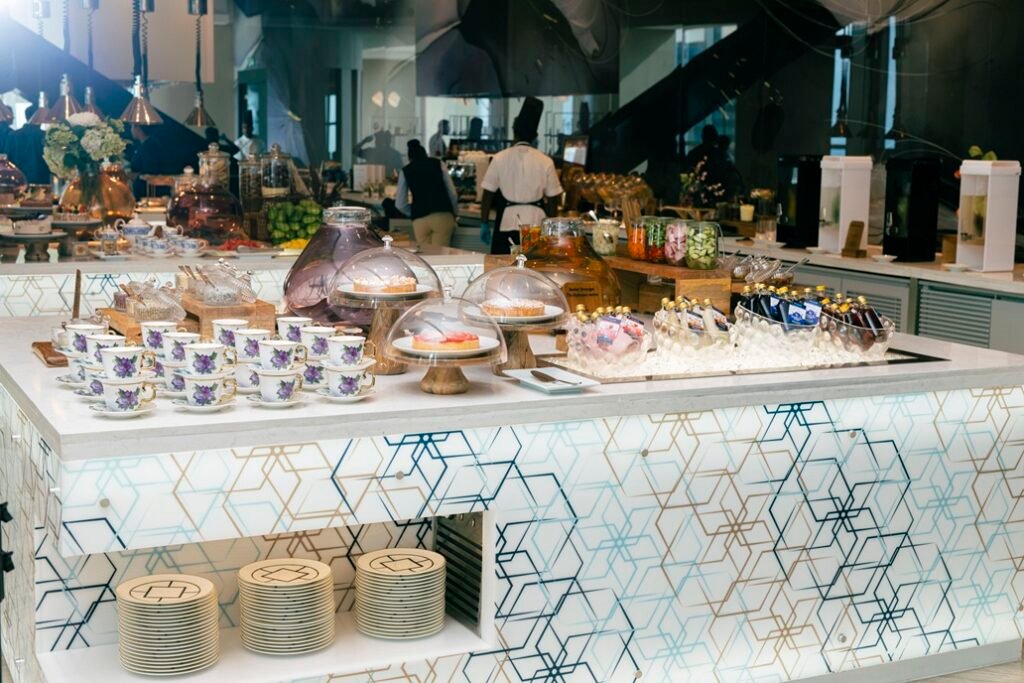The Sri Lanka Apparel Exporters Association (SLAEA) participated in the 16th Global Textile and Apparel Supply Chain Conference held in Shanghai, China recently with a focus on innovation and the development of national high-end textile advanced manufacturing clusters.

Representing Sri Lanka at the annual conference, President of SLAEA Indika Liyanahewage spoke on ‘Green dynamics and intelligent empowerment’ with special emphasis on sustainable fabric manufacturing.
“Apparel is a significant industry in Sri Lanka, accounting for 6 percent of our country’s GDP, providing employment to 350,000 individuals,” stated Liyanahewage. “Despite challenges brought about by COVID-19, followed by the economic crisis that led to double-digit inflation, the industry continued business operations.”
Providing an overview of the current state of Sri Lanka’s economy, Liyanahewage noted that with domestic debt restructuring now completed and the second tranche of the IMF being worked on, the country is on the path to stability.
He further emphasized that the country’s apparel sector had placed sustainability and compliance at the core of its agenda, with the majority of its members embracing WRAP, LEED and GOTS certifications. “The sector has over 70 MW of installed rooftop solar power capacity and we continue to invest in renewable energy. We are passionate about sustainability, a commitment that is driven on a top-down approach. A number of apparel manufacturers are truly dedicated to circularity, with many green factories emerging and material recycling becoming an important aspect of our efforts.”
SLAEA also called for further collaboration in fabric manufacturing and innovation. “While most of the yarn and materials are imported from China, the growing demand for organic or recycled fabric necessitates a stronger partnership. The Eravur Fabric Park in the East coast of Sri Lanka will play a pivotal role in this. We invite investors and fabric manufacturers to collaborate, as this will enable faster turnaround times and increase our production capabilities.”
Spanning over 300 acres, the zone offers opportunities for various verticals related to textile manufacturing. Manufacturers can establish plants in the zone and reduce material lead times with locally sourced fabric, thereby reducing input costs. Some of the key incentives for manufacturers include 5-10 year tax holidays for exports, zero percent duties and taxes on imported raw materials, tax exemptions and 100 percent repatriation of profits.
“Sri Lanka’s strategic location in the Indian Ocean is an advantage we must harness,” Liyanahewage stressed.
The 16th Global Textile and Apparel Supply Chain Conference had the participation of high-ranking officials from the Chinese government and key stakeholders in apparel manufacturing including fabric, yarn, trims suppliers and apparel manufacturers from around the world. The three day event also witnessed the appointment of an expert committee for high-end textiles.






